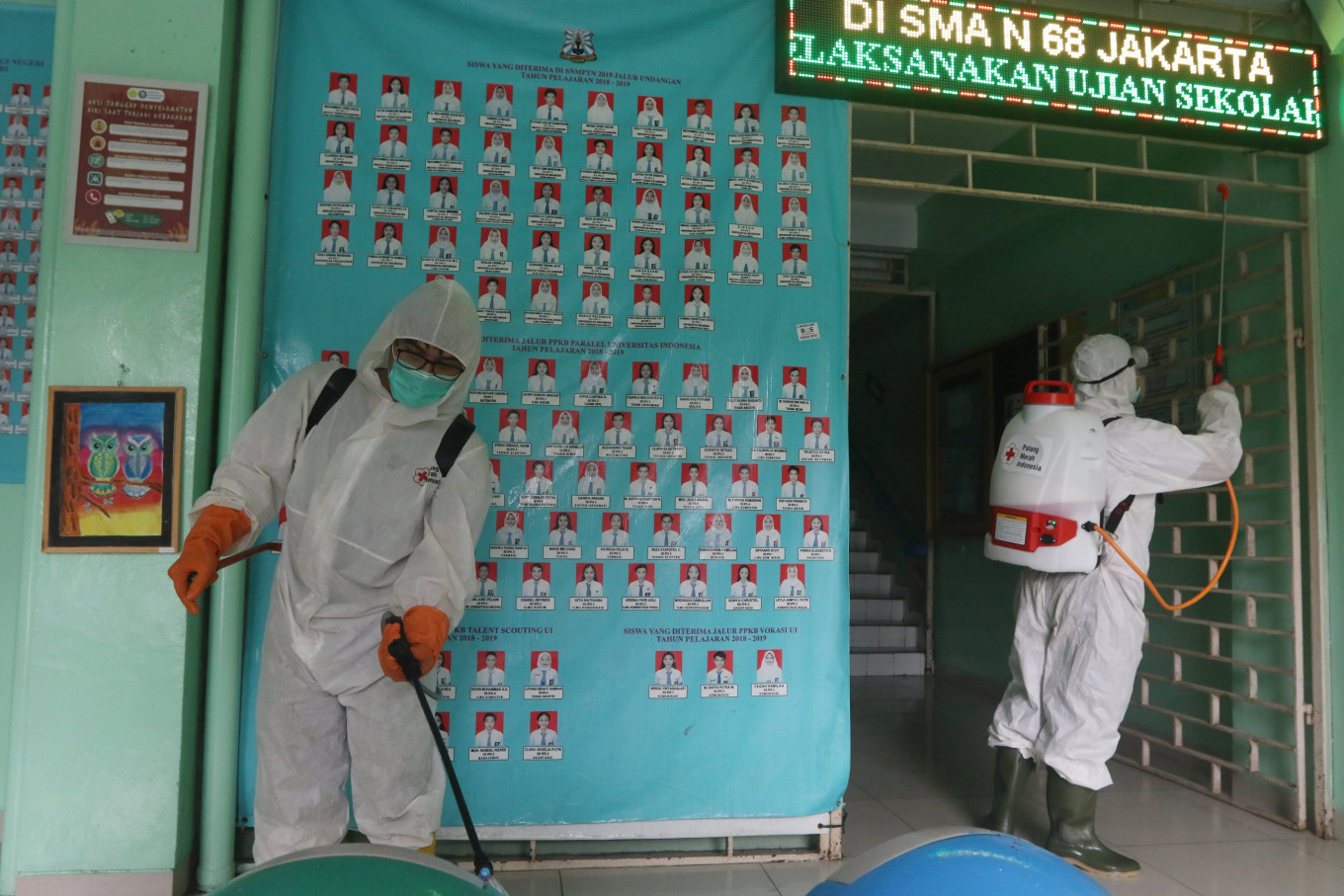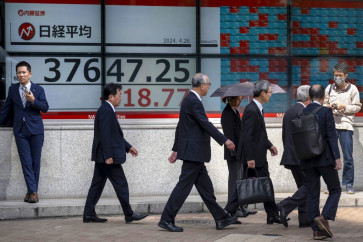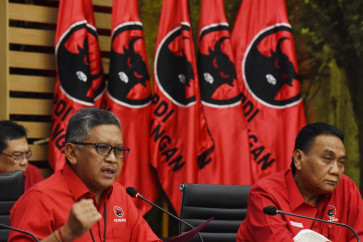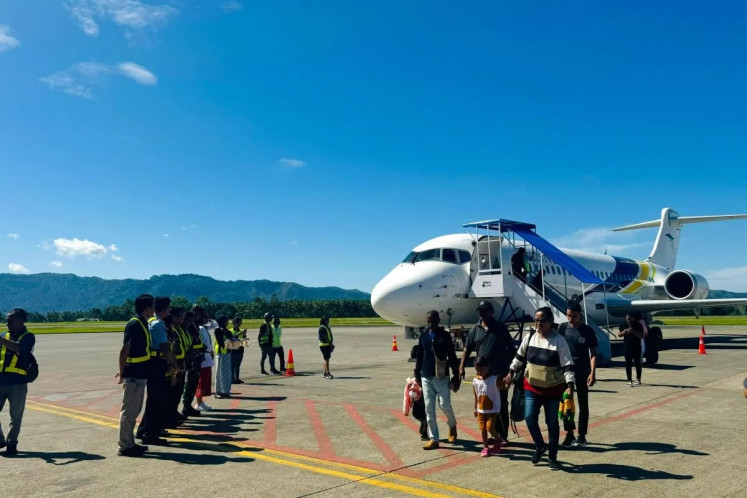Indonesia to allow phased reopening of schools in COVID-19 ‘green zones’: Minister
The country, which has set July 13 as the start of the 2020-2021 school year in its academic calendar, will allow gradual reopening of high schools before allowing elementary schools and kindergartens to follow suit.
Change Size
 Indonesian Red Cross (PMI) workers spray disinfectant at SMA 68 Jakarta senior high school on March 3. Indonesia is set to begin reopening schools in green zones, starting in July. (JP/Dhoni Setiawan)
Indonesian Red Cross (PMI) workers spray disinfectant at SMA 68 Jakarta senior high school on March 3. Indonesia is set to begin reopening schools in green zones, starting in July. (JP/Dhoni Setiawan)
T
he Education and Culture Ministry has announced that the country will allow phased reopening of schools located in COVID-19 low-risk areas, or “green zones”, starting in July.
A joint ministerial decree by the education minister, religious affairs minister, home minister and health minister was announced on Monday to regulate the school reopening during the pandemic.
"We'll allow schools in green zones to reopen," Education and Culture Minister Nadiem Makarim said in Monday's online press conference.
"Around 90 cities and regencies across Indonesia are considered green zones. The number of students in those areas is roughly equivalent to 6 percent of all students in the country. This means the remaining 94 percent still have to continue their education through online learning," added Nadiem.
According to the ministry’s official academic calendar, the beginning of the 2020-2021 school year is slated for July 13.
In the press conference, national COVID-19 task force chief Doni Monardo said the task force had mapped the risk status of all regions in the country affected by the COVID-19 pandemic based on 15 indicators from the World Health Organization. The indicators, which comprise the number of new cases, suspects and fatalities among other things, determine whether the regions fall into the green, yellow, orange or red category.
Read also: School reopening raises concerns as health risks loom
"The status of a region could change easily based on the progress of COVID-19 transmission in the area," Doni said.
Nadiem explained that the ministry would hand the final decision to reopen schools in certain green zones to their respective regional administration.
"Even if the local administrations decide to reopen schools, the schools still have to fulfill our strict requirements and health protocols before reopening," he said.
For the reopening, the schools are required to have clean toilets, hand-washing facilities, disinfectant, thermo guns and access to health facilities. They should also provide areas where wearing a face mask is mandatory.
"Students, teachers or parents who are sick or have a comorbidity are advised not to go to schools. Those who had traveled outside the green zone area should also self-isolate for 14 days before going to schools," Nadiem said.
During the initial stage, the ministry will only allow senior and junior high schools to reopen. Elementary schools will be able to follow suit two months after, while kindergartens four months after.
Read also: Ministry suggests shorter school hours as part of 'new normal'
After the reopening, all students have to adhere to physical distancing measures and wear masks. Schools are required to limit the amount of students per classroom to 18, or roughly 50 percent of the previous capacity.
"As a consequence, schools have to implement a shift system to be able to accommodate all students," Nadiem said. "Meanwhile, boarding schools are still prohibited from reopening their dorms for at least for two months after reopening."
During the initial two months after reopening, schools are prevented from running their canteens and cafeterias. Physical education classes and extracurricular activities are also prohibited.
Nadiem further said that parents would have the final say on whether they would allow their children to go to school or not.
"Schools cannot force parents to allow their children to attend. If they are not comfortable letting their children go to school, the school should allow the students to resume their online learning," he added.
The minister also said schools could be closed again if there was any COVID-19 transmission in the area, or if the risk status of the area had changed to yellow, orange or red.









